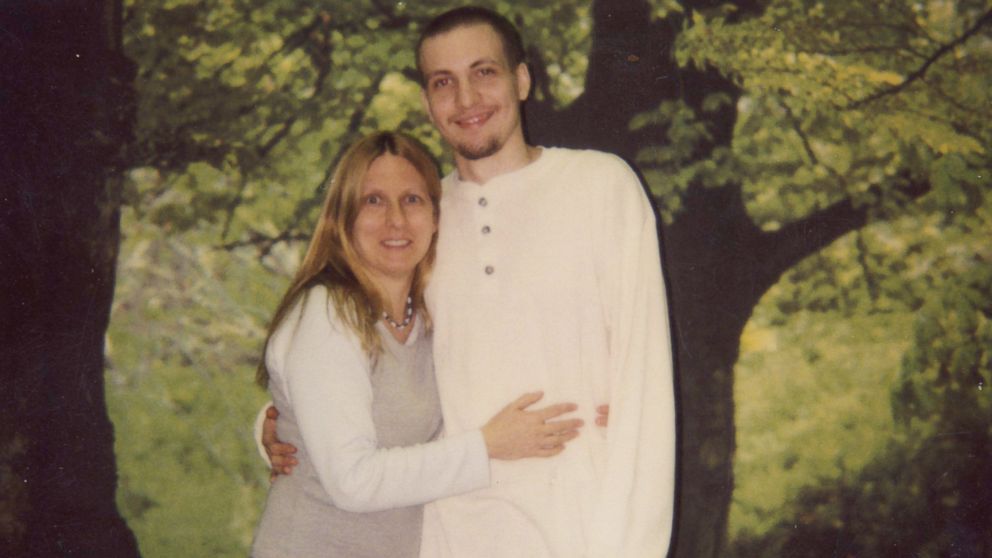A night of impromptu partying ends in murder, a suspect's conviction is overturned, but he remains in jail: 'I want my name cleared'
Nearly 16 years ago, a college student was found dead after a night of partying in Brooklyn, New York. Two men were charged with his murder, but one of them, John Giuca, had his conviction overturned last year.
And yet, Giuca remains behind bars at New York City’s Rikers Island jail, with the fate of his freedom still hanging in the balance. He has long maintained his innocence.
“I had nothing to do with the murder of Mark Fisher,” Giuca, 35, told “20/20” in a jailhouse interview. “I want my name cleared. One of the worst parts about this is people thinking that I'm a murderer. And I want that wiped away because it shouldn't be there in the first place.”
Since the day her son was arrested, his mother, Doreen Giuliano, has been on a crusade to prove his innocence, even tracking down jurors from his murder trial and secretly recording conversations she had with them while undercover.
“John is innocent and we can prove it,” Giuliano said. “They put away an innocent man and there’s nothing that’s going to stop me.”
Giuca’s legal saga is one that is full of twists and turns through the complicated justice system. He and his mother are trying everything they can to free him from jail, but have run into legal setback after setback every step of the way.
Watch the full story on "20/20" Friday, May 17, at 9 p.m. ET on ABC, including a new jailhouse interview with John Giuca.
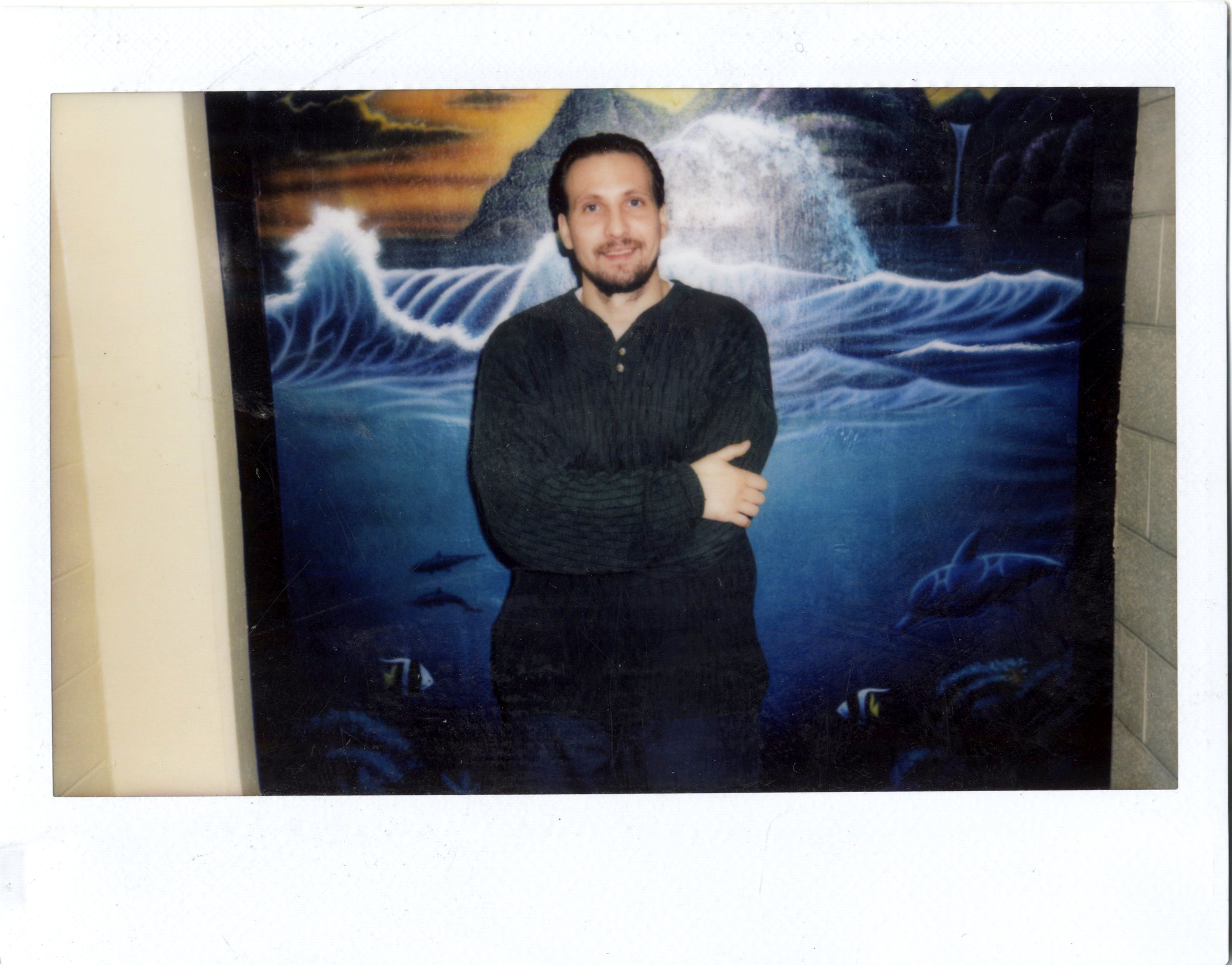
It began on Oct. 11, 2003. Mark Fisher, 19, was a sophomore at Fairfield University in Connecticut, where he was on the dean’s list and studying to become an accountant. That Columbus Day weekend, Fisher was hopping from bar to bar on Manhattan’s Upper East Side, when he ran into a girl he knew from school, and was immediately attracted to one of her friends.
Fisher and the woman later met up with another group that included Giuca.
"To tell the truth… he [Mark] just had a personality that was likeable," Giuca said. “I thought he was cool.”
After some members of the group were unable to get into bars because they were underage, Giuca, then 20 years old, invited everyone to his parents’ house in Brooklyn, New York, for an impromptu party that night.
According to witnesses, Fisher was intoxicated, didn't have a lot of money on him and had no way to get back to New Jersey, where he had been staying at a friend’s house that weekend.
Antonio Russo, aka "Tweed," is said to have supplied the marijuana at the party that night, according to authorities.
What happened in the early morning hours as the party broke up is unclear, but somehow, Fisher’s body ended up on Argyle Road, two blocks from Giuca’s home. He had been viciously beaten and shot five times. He was found lying on a blanket that had come from Giuca’s home.
"I can tell you that our detectives, when they arrived at the scene, they found a male -- white, prone -- obviously the victim of several gun shots. There was some trauma to his face," retired New York Police Department homicide squad Lt. Robert Casazza told "20/20."
Giuca, who was in college studying criminal law and wanted to become a police detective, became a prime suspect in the murder.
"I got a call from John," Giuliano told “20/20." "He said, ‘Ma, you need to come home.’ And I said, ‘Is everything OK?’ And he said, ‘You need to come home.’"
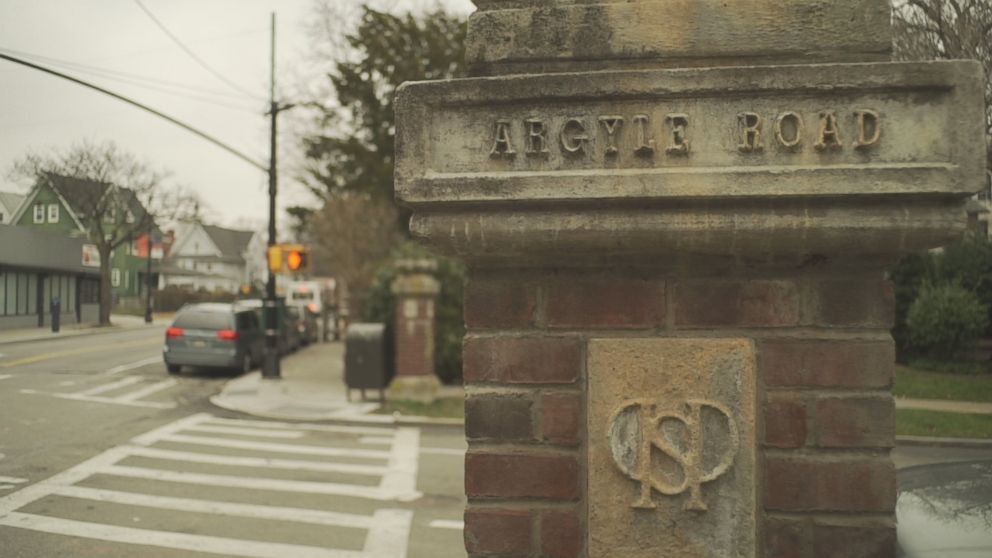
When she arrived, she said, “The press was on my lawn, and detectives were on my porch.”
Russo, then 17, was also under investigation, especially after some suspicious behavior that included a haircut.
"He [Russo] had dreadlocks that he had cultivated for years, so for him to get them sheared was very suspect," former New York Police Department detective and author Robert Mladinich told "20/20." "And then he takes off for California a couple of days later. That certainly makes him the prime suspect."
Police said everyone at the party was a person of interest, but with no hard evidence, the case was difficult to solve.
The murder remained a mystery after most of the people at Giuca's party retained lawyers and weren’t forthcoming to investigators. The investigation stalled for months.
Prosecutor Anna-Sigga Nicolazzi was assigned to the case and forced witnesses -- including Giuca’s friends -- to testify before a grand jury.
Eventually, the wall of silence cracked as some of Giuca's friends began to turn against him. Giuca and Russo were eventually arrested and charged with murder. Others who had been questioned, including Albert Cleary, were cleared of suspicion.
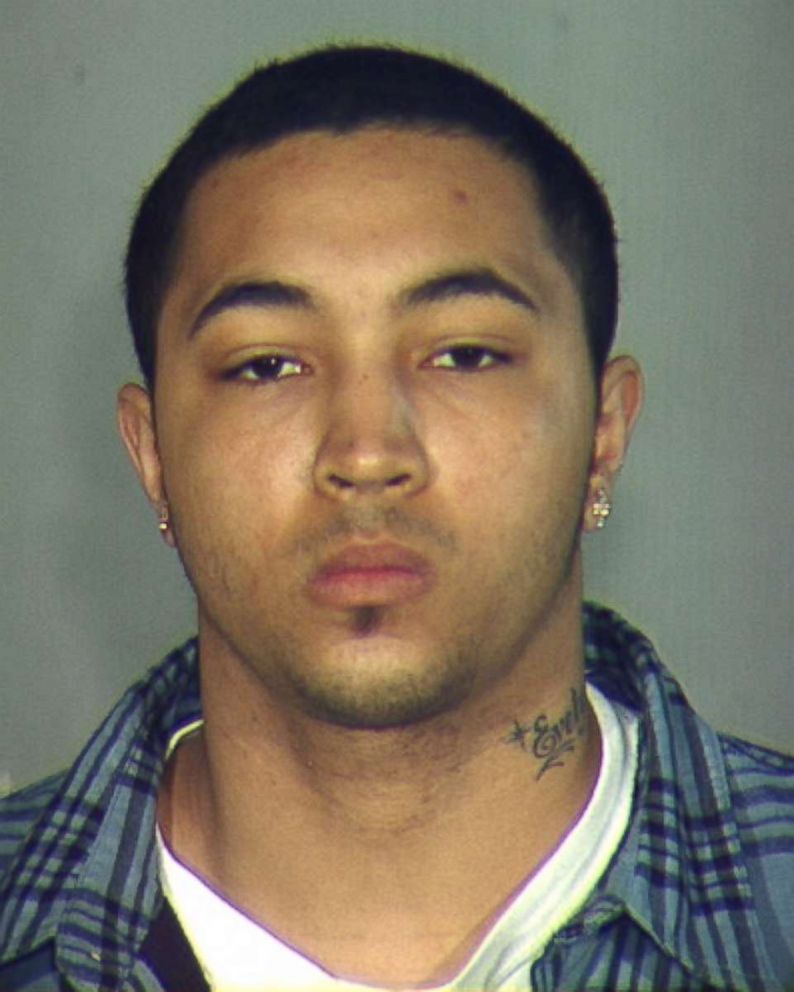
Cleary testified in front of the grand jury that Giuca had a .22-caliber pistol, the same caliber as the murder weapon, and that Giuca had given the gun to Russo to shoot Fisher.
“That’s so ridiculous,” Giuca said. “That’s just not true.”
Giuca is adamant that he has never owned nor ever fired a gun.
At Giuca's trial, which began on Sept. 12, 2005, the prosecutor argued that Giuca was a neighborhood thug and head of the so-called "Ghetto Mafia," out to get street cred by having Fisher killed.
“It was something that was totally blown out of proportion,” Giuca said. “I was never in a gang, and everyone who knows me knows that.”
Sitting in the courtroom for her son’s trial “was awful,” Giuliano said. “One lie after the other, after the other.”
For the prosecutor to claim that her son was in a gang and had killed someone to up his street cred was “such a joke,” Giuliano said. She said her son and his friends had called their friend group various names over the years for fun.
“From 9 years old they were first the Westminster Warriors,” she said. “Maybe about 11, they became the Stratford Stray Cats. And then eventually they did call themselves the Ghetto Mafia. They did, and it meant nothing but a bunch of boys getting together.”
In addition to Cleary, Lauren Calciano, Giuca's on-again, off-again girlfriend, was also a witness for the prosecution, implicating Giuca in the killing.
“It was just devastating,” Giuca said. “It crushes you. It rips your heart out.”
“That’s the testimony that brought me to my knees,” Giuliano said. “I felt like she was like my daughter…What she did nearly destroyed me.”
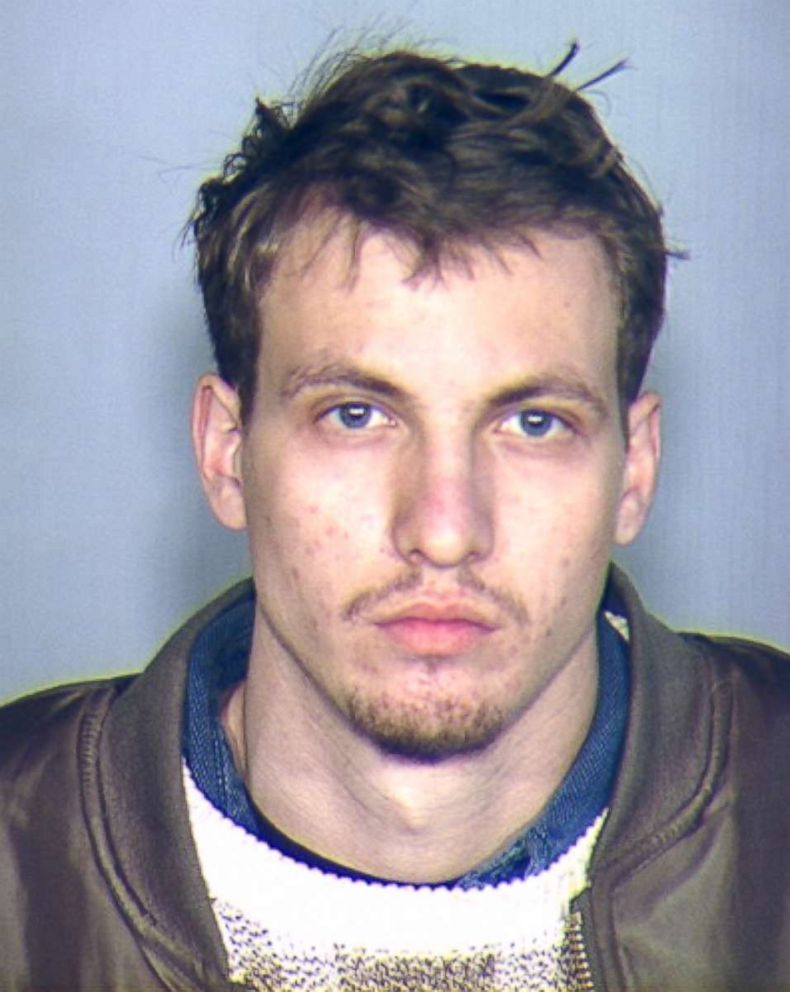
John Avitto, who said he'd met Giuca while both were incarcerated at Rikers, also testified at the trial. On the stand, Avitto said that Giuca had told him that he had pistol-whipped Fisher before someone else then took the gun and shot him dead.
Giuca said he remembers “not really associating” with Avitto at Rikers and being “totally shocked” by his testimony.
“I thought that the jury would easily be able to see through it because it was obvious that the things he was saying not only contradicted everyone else and contradicted physical evidence in the case, but it was obvious that it was taken right out of the newspapers,” Giuca said.
It took a jury two days to convict Russo. For Giuca, it was just a couple of hours. Both were found guilty of murder by two separate juries in Brooklyn, New York, and sentenced to 25 years to life in prison.
“I turned white as a ghost and I was in such a total shock that I couldn’t believe,” Giuca said. “My brain would not accept it.”
“I got so angry and I jumped up and I said to the detectives that were sitting in the front row, ‘Are you happy now?’” Giuliano said. “I got dragged out by family members and then, I ended up fainting outside.”
Irate over the verdict, Giuliano immediately focused on the jurors who had quickly convicted her son.
“I got my hands on the juror list and I decided that I was going to investigate each and every one,” she said. “Ask them what went on in the jury box, who believed he was guilty and why.”
She went undercover to find out as much as she could about one juror in particular: Jason Allo, juror number 8, whom she learned had known some of her son's friends. For months, Giuliano staked out Allo's every move on a corner in Bensonhurst, Brooklyn.
Five months into what she called her sting, Giuliano finally got his attention. She bought a burner phone and a fake business card. She went by the fake name "Dee Madison Quinn" and rented a bachelorette pad for more than a year. She also dressed provocatively.
“I was willing to look like a prostitute with my 6-inch heels and my push-up bra,” she said.
She wore a recording device and recorded many of their conversations. Slowly, Giuliano gained Allo's trust, turning their conversations toward her son's murder trial.
"You could have got excused. There's a million and one reasons to get excused," Giuliano is heard saying in the recording.
In the recordings, Allo is heard saying that he's prejudiced and also revealing that he didn't disclose that he knew some of Giuca's friends during jury selection.
“She’s my hero,” Giuca said. “She’s everything to me…If anything ever happened to her, I would just be totally lost.”
Giuca's lawyer submitted a motion alleging juror misconduct to the judge, citing the recordings Giuliano made undercover with Allo.
The judge denied the motion, however, ruling that the recordings were unreliable and that there was no evidence Allo had intentionally lied during jury selection. He also denounced Giuliano for her "reckless" and "vigilante" behavior.
In a 2009 interview with ABC News, Allo said he had told the truth in court, and he and his attorney Salvatore Strazzullo denied what Giuliano claimed she had caught on tape.
Allo insisted that he did not commit perjury or withhold information during jury selection.
After Giuca’s motion was denied, Giuliano and her son’s attorneys turned to private investigator Jay Salpeter, asking him to investigate Avitto, the jailhouse informant.
At Salpeter's first meetings with Avitto, he stuck to the story that Giuca had been involved in Fisher's killing. But in a later conversation, Avitto said he'd completely fabricated his account of Giuca’s involvement in the murder.
"The whole thing was a lie," Avitto is heard saying on a recording made by Salpeter during their conversation.
Avitto said that in exchange for his testimony, prosecutor Nicolazzi and detectives had helped him stay out of jail when he violated his probation.
"I [had] gotten into violations of the program and stuff. And, they helped me get out of those," Avitto is heard saying in the recording. "Just to keep me so I can testify.”
Avitto followed up his conversation with Salpeter with an affidavit filed with the court in which he acknowledged he had "testified falsely" at Giuca's trial.
Two more witnesses for the prosecution -- including girlfriend Calciano -- also recanted their testimony. In a sworn affidavit obtained by ABC News, Calciano said she'd lied on the stand after Nicolazzi and police put "relentless" pressure on her, threatening to "make this hard" for her father who was in jail at the time.
Pace Law School professor Bennett Gershman was retained by Giuca's family to help file a petition with the Brooklyn district attorney seeking review of Giuca's conviction and alleging prosecutorial misconduct.
"All I can say is that in any dealings that I had or the detectives had, I think we always found [Nicolazzi] to be of the utmost integrity," said Casazza, retired New York Police Department homicide squad lieutenant.
The District Attorney's Office said it found no evidence of prosecutorial misconduct and Giuca's petition was denied.
Giuca's legal team then filed a motion in court to vacate his conviction based on prosecutorial misconduct. On the witness stand at a hearing, Nicolazzi denied she'd done anything wrong in the case.
Avitto also took the stand, recanting his testimony and apologizing to Giuca. When that happened, Giuca said, “it was like a weight was lifted off” his shoulders.
“It was just like, finally, ‘Thank God,’” he said. “Because it took a lot, really, honestly, to do that. Because before… when he was lying on the stand, he was keeping himself out of jail. But now… there’s absolutely no motive to get back on the stand and do that.”
“So it took a lot of courage to do that,” he added.
Still the judge denied Giuca's motion. Giuca filed an appeal to get the judge's decision overturned.
“[That was] just another crushing blow,” Giuca said. “There’s been so many, honestly, that I’m almost numb. But it was so wrong. It was so, so wrong that he (the judge) did that. I couldn’t believe it.”
In February 2018, after a 13-year-long crusade by Giuliano, Giuca's conviction was thrown out by an appellate court. The four judges said in their opinion that the prosecutor had erred by not telling the defense that she and police had helped jailhouse informant Avitto, which might have affected the jury's verdict. The judges added that a new trial was necessary.
When their attorney called her with the news, Giuliano said she started screaming with happiness: “I thought it was a miracle.”
On March 22, 2018, New York police detectives sent by the Brooklyn district attorney interviewed Russo, Giuca's co-defendant who had also been found guilty in the murder and imprisoned. He allegedly confessed that, using his own gun, he had shot and killed Fisher. In a police report of that interview obtained by ABC News, he did not implicate Giuca but did not clear him either.
Regardless, prosecutors contested the appellate court’s decision. On April 30, 2019, they argued before a panel of seven judges on the New York Court of Appeals, the highest court in the state, to have Giuca’s conviction reinstated. Giuca’s attorney, Mark Bederow, countered that the lower court had decided to throw out his client’s conviction, and that his client is entitled to a new trial.
A decision from the New York Court of Appeals is still pending.
If this court decides to reinstate Giuca’s conviction, he will be back in prison to serve out the rest of his sentence. But if it decides Giuca is entitled to a new trial, it will be up to prosecutors to decide if they want to go through with it.
In the meantime, even though his conviction was overturned, John Giuca remains in jail on Rikers Island. A judge denied him bail while the appeal process continues. But, he and his mother aren’t backing away from their crusade for his freedom.
“I’ve got to fight for my son's life, you know? I have to fight for my son,” Giuliano said.
